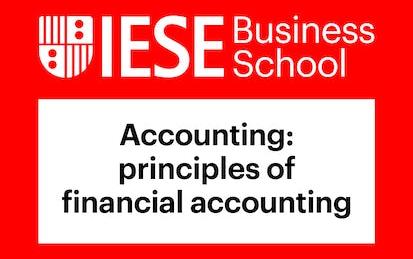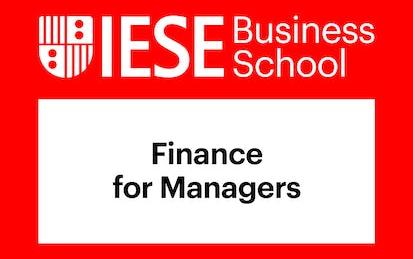

Our Courses

FinTech Foundations and Overview
Our primary goal is to help you to understand FinTech and to become more confident and persuasive in your ability to analyze and make recommendations to executives within the finance industry regarding how to react to these changes. This FIRST MOOC ON FINTECH IN ASIA-PACIFIC offered by HKUST presents the insight of several professors from the top business school in Asia as well as perspectives from industry professionals.
-
Course by

-
 Self Paced
Self Paced
-
 15 hours
15 hours
-
 English
English
Corporate Finance II: Financing Investments and Managing Risk
In this course you will learn how companies decide on how much debt to take, and whether to raise capital from markets or from banks. You will also learn how to measure and manage credit risk and how to deal with financial distress. You will discuss the mechanics of dividends and share repurchases, and how to choose the best way to return cash to investors. You will also learn how to use derivatives and liquidity management to offset specific sources of financial risk, including currency risks.
-
Course by

-
 Self Paced
Self Paced
-
 19 hours
19 hours
-
 English
English

Accounting for Decision Making
Through this course, you will start by addressing the two “big questions” of accounting: “What do I have?” and “How did I do over time?” You will see how the two key financial statements – the balance sheet and the income statement - are designed to answer these questions and then move on to consider how individual transactions aggregate to make up these financial statements.
-
Course by

-
 30 hours
30 hours
-
 English
English

Introduction to Time Value of Money (TVM)
The strength of finance is that it takes a structured approach to decision making, with one key building block underlying all decisions — understanding the value of time, or the Time Value of Money (TVM). In this course, we will develop this building block using introductory, and simple, applications. We will learn about the Time Value of Money (TVM), Simple Future Value (FV) , Simple Present Value (PV) , Future Value of Annuity, Loans, compounding, and Valuing Perpetuities.
-
Course by

-
 Self Paced
Self Paced
-
 13 hours
13 hours
-
 English
English

Global Financial Markets and Instruments
Get a running start in the high-stakes world of financial investment! This first course is designed to help you become an informed investor by providing you with the essential concepts for long-term success in managing money. You’ll start by learning the role of financial markets and financial assets in a well-functioning economy. From there, you’ll learn about the wide range of financial instruments available in major asset classes, their features and valuations.
-
Course by

-
 Self Paced
Self Paced
-
 20 hours
20 hours
-
 English
English
Investments II: Lessons and Applications for Investors
In this course, you will start by reviewing the fundamentals of investments, including the trading off of return and risk when forming a portfolio, asset pricing models such as the Capital Asset Pricing Model (CAPM) and the 3-Factor Model, and the efficient market hypothesis. You will be introduced to the two components of stock returns – dividends and capital gains – and will learn how each are taxed and the incentives provided to investors from a realization-based capital gains tax.
-
Course by

-
 Self Paced
Self Paced
-
 20 hours
20 hours
-
 English
English

Machine Learning: Regression
Case Study - Predicting Housing Prices In our first case study, predicting house prices, you will create models that predict a continuous value (price) from input features (square footage, number of bedrooms and bathrooms,...). This is just one of the many places where regression can be applied.
-
Course by

-
 Self Paced
Self Paced
-
 22 hours
22 hours
-
 English
English
Investments I: Fundamentals of Performance Evaluation
In this course, we will discuss fundamental principles of trading off risk and return, portfolio optimization, and security pricing. We will study and use risk-return models such as the Capital Asset Pricing Model (CAPM) and multi-factor models to evaluate the performance of various securities and portfolios. Specifically, we will learn how to interpret and estimate regressions that provide us with both a benchmark to use for a security given its risk (determined by its beta), as well as a risk-adjusted measure of the security’s performance (measured by its alpha).
-
Course by

-
 Self Paced
Self Paced
-
 26 hours
26 hours
-
 English
English

Digital Competition in Financial Services
Welcome to Digital Transformation Strategy! As you probably know, this is the first course in a three part specialization focused on the digital transformation of finance. We'll aim to bring you insights about how digitalization intersects with finance, culled from one of the world's top regions for digital innovation. I'm excited to have you in the class and look forward to helping you learn more about this important topic. To begin, I recommend taking a few minutes to explore the course site. A good place to start is the navigation bar on the left.
-
Course by

-
 Self Paced
Self Paced
-
 12 hours
12 hours
-
 English
English

Corporate Finance I: Measuring and Promoting Value Creation
In this course you will learn how to use key finance principles to understand and measure business success and to identify and promote true value creation. You will learn how to use accounting information to form key financial ratios to measure a company’s financial health and to manage a company's short-term and long-term liquidity needs. You will also learn how to use valuation techniques to make sound business investment and acquisition decisions.
-
Course by

-
 Self Paced
Self Paced
-
 24 hours
24 hours
-
 English
English

Securing Investment Returns in the Long Run
In this course, you will learn about the famous dichotomy between active and passive investing, how to appropriately measure and analyze investment performance and what the future trends in the investment management industry are. You will first learn about absolute and relative performance, risk-adjusted returns and how to decompose investment performance. The focus will then shift to the two main categories of investment vehicles, active and passive funds, and what they entail in terms of expected performance.
-
Course by

-
 Self Paced
Self Paced
-
 8 hours
8 hours
-
 English
English

Analysis of Business Problems
When does an opportunity to increase the bottom line become a liability for long-term brand sustainability and profitability? That is the question that GAS GAS, an off-road motorcycle manufacturer, is confronting. In this culminating course, it’s time to use the business tools you have learned throughout the specialization to solve this real business problem. To help you as you develop a solution to the GAS GAS dilemma, in the Capstone you will also learn a six-step analysis of business problems methodology.
-
Course by

-
 Self Paced
Self Paced
-
 10 hours
10 hours
-
 English
English

Introduction to Applied Machine Learning
This course is for professionals who have heard the buzz around machine learning and want to apply machine learning to data analysis and automation. Whether finance, medicine, engineering, business or other domains, this course will introduce you to problem definition and data preparation in a machine learning project. By the end of the course, you will be able to clearly define a machine learning problem using two approaches. You will learn to survey available data resources and identify potential ML applications.
-
Course by

-
 Self Paced
Self Paced
-
 7 hours
7 hours
-
 English
English

Accounting: Principles of Financial Accounting
Financial Accounting is often called the language of business; it is the language that managers use to communicate the firm's financial and economic information to external parties such as shareholders and creditors. Nobody working in business can afford financial illiteracy. Whether you run your own business, work as a manager or are just starting your career, you want to understand financial information and be able to interact with accountants, controllers, and financial managers. You want to talk business! This course will provide you with the accounting language's essentials.
-
Course by

-
 Self Paced
Self Paced
-
 13 hours
13 hours
-
 English
English

Finance for Managers
When it comes to numbers, there is always more than meets the eye. In operational finance, you will learn how to read the “story” that the balance sheet and income statement tells about the company’s operations. The insights you gain from this “financial story” will then become a tool for short-term decision-making at the top management level relating to current assets, current liabilities and the management of working capital. Finally, by the end of the course you will understand the financial consequences of managerial decisions on operations, marketing, etc.
-
Course by

-
 Self Paced
Self Paced
-
 14 hours
14 hours
-
 English
English

Predictive Modeling and Analytics
Welcome to the second course in the Data Analytics for Business specialization! This course will introduce you to some of the most widely used predictive modeling techniques and their core principles. By taking this course, you will form a solid foundation of predictive analytics, which refers to tools and techniques for building statistical or machine learning models to make predictions based on data. You will learn how to carry out exploratory data analysis to gain insights and prepare data for predictive modeling, an essential skill valued in the business.
-
Course by

-
 11 hours
11 hours
-
 English
English



